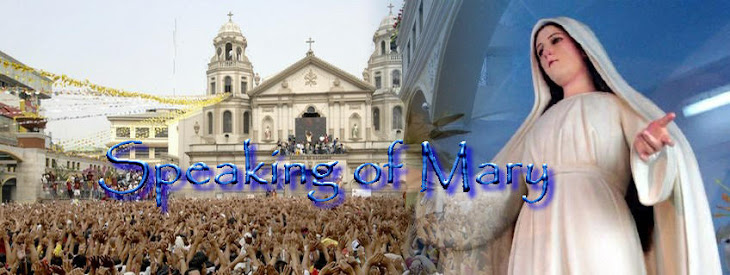The month of August marks the Solemnity of the Assumption of the Blessed Virgin Mary (August 15) and the Feast of the Queenship of Mary (August 22). The latter intentionally celebrated seven days after the Assumption to mark an octave of celebration.
We have heard it often now, it used to be seldom in the past, that many who are supposed to be better educated than us (for they hold so many degrees in theology, philosophy, or what have you) questioning so many traditional teachings of the Church, or at the very least, “re-reading,” re-defining the Church’s teachings. And even to the extent of questioning the historicity of the Resurrection of Christ.
I find this entry in the New Advent Catholic Encyclopedia very educating:
Catholics do not admit that, as is sometimes alleged, dogmas are the arbitrary creations of ecclesiastical authority, that they are multiplied at will, that they are devices for keeping the ignorant in subjection, that they are obstacles to conversions. Some of these are points of controversy which cannot be settled without reference to more fundamental questions. Dogmatic definitions would be arbitrary if there were no Divinely instituted infallible teaching office in the Church; but if, as Catholics maintain, God has established in His Church an infallible office, dogmatic definitions cannot be considered arbitrary. The same Divine Providence which preserves the Church from error will preserve her from inordinate multiplication of dogmas. She cannot define arbitrarily. We need only observe the life of the Church or of the Roman pontiffs to see that dogmas are not multiplied inordinately. And as dogmatic definitions are but the authentic interpretation and declaration of the meaning of Divine revelation, they cannot be considered devices for keeping the ignorant in subjection, or reasonable obstacles to conversions, on the contrary, the authoritative definition of truth and condemnation of error, are powerful arguments leading to the Church those who seek the truth earnestly.
Oops. Probably I sounded very technical here. And yet, we do need to realize that the not so-called educated are wise. We can only turn to the Gospel and hear the Lord telling his listeners that many truths have been hidden from learned and have been revealed to mere children.
And among the dogmas always incurring the criticism of non-Catholics are the Marian dogmas. Among these, of course, is the dogma of the Assumption. But lest we forget, the Church defines dogmas not in relation to their acceptability to other religions nor to the general public but the Church proclaims them as such because they are objective truths.
Hence, the Church proclaims certain truths as dogmas of Faith not because of whim and caprice of some or of many but that basing herself on the Revealed Truth which is Sacred Scripture and on Sacred Tradition, she is able to define dogmas definitively.
Regarding the day, year, and manner of Our Lady's death, nothing certain is known. The earliest known literary reference to the Assumption is found in the Greek work De Obitu S. Dominae. Catholic faith, however, has always derived our knowledge of the mystery from Apostolic Tradition. Epiphanius (d. 403) acknowledged that he knew nothing definite about it. The dates assigned for it vary between three and fifteen years after Christ's Ascension. Two cities claim to be the place of her departure: Jerusalem and Ephesus. Common consent favors Jerusalem, where her tomb is shown; but some argue in favor of Ephesus. The first six centuries did not know of the tomb of Mary at Jerusalem (The Catholic Encyclopedia).
By promulgating the Bull Munificentissimus Deus, 1 November, 1950, Pope Pius XII declared infallibly that the Assumption of the Blessed Virgin Mary as a dogma of the Catholic Faith.
Thursday, August 13, 2009
Subscribe to:
Post Comments (Atom)


No comments:
Post a Comment